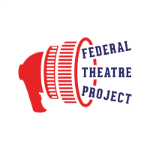Director’s Notes by Kevin Finkelstein
Brave Spirits Theatre
Henry IV parts 1 and 2
William Shakespeare
Original: https://www.bravespiritstheatre.com/wp-content/uploads/2019/09/BST-Archive-H4-2015-Program.pdf
The show that’s on everyone’s lips right now is Hamilton, a refreshingly direct, beautifully written musical that proves you don’t need a slew of white men to accurately and effectively portray history. So what happens when you want to direct a show that has 63 out of 67 characters written as male?
21 years ago, I had the honor of interning for The Shakespeare Theatre. Little did I know that the first show of the season, a two-show unified production of Henry 4th parts 1 and 2, would forever alter how I saw Shakespeare on stage. Performances by Derek Smith (Hal), David Sabin (Falstaff), Ed Gero (Hotspur) and, of course, Ted van Griethuysen (Henry IV) blew me away. The nuance, the subtlety, the roller-coaster ride of six hours of theatre crammed into 3 ½…and me, a high school senior sitting on book in a professional environment for the first time. I loved this production, and I told myself on opening night that I would one day direct this show, but I’d do it my way.
Fast forward 21 years, and we’re finally here. There are, of course, drastic differences between this production and STC’s. Foremost, we’ve re-gendered all but six of Shakespeare’s characters. We’ve also moved the reality of the play out of our world and into a historical matriarchal society. We’ve added 30 songs to these two productions. We’ve tweaked the nature of some of the relationships. In fact, I’d argue that this change is the one you will notice the most. Yes, you’re probably not used to seeing Queen Henri IV, or Prince Hallie (especially if you’ve read or seen this show before). What you haven’t seen is the mother-daughter relationship between Queen and Prince, or a fatter-than-fat female Falstaff be the butt of so many jokes.
Women comprise 51% of the population. In DC, female actors outnumber their male counterparts 2:1. For audiences seeing this production, we want them to walk out thinking about the world, the society they live in. Recognize how some things are taken for granted and recognize the challenges others face. Understand how language has so traditionally be male-focused. Is the urge to go to war a male trait, or a human trait? Why is a strained mother-daughter relationship more compelling than that of father-son? How do personal outlooks change when personal safety isn’t as much of a concern?
Building a matriarchal society from scratch has been an experience like no other. This is not a “tip for tap” society: we haven’t just reversed gender roles. Instead, we’ve developed a nuanced society that has elements in common with our world (Christianity, monarchy) but also has its own style (for example, kneeling and bowing motions have been replaced with our own interpretation). Ultimately, these changes serve to highlight the differences between the world of the play and the world the audience enters from. It is through these differences that we want our audience to examine their own thoughts on gender.
